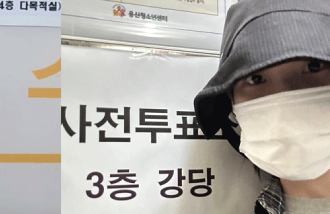No Respect for Human Rights Regarding SARS?
No Respect for Human Rights Regarding SARS?
Posted May. 02, 2003 22:20,
The Singapore government is taking extreme measures such as the quarantining of 2,890 residents (as of April 30), who are considered to be infected with SARS, in order to prevent the spread of the highly contagious illness.
Whenever possible infections are found, a special company installs a monitoring camera inside SARS infected homes.
Health authorities then call those infected at any time and encourage them to check their monitoring camera to make sure they are always visible.
Non-cooperative patients who do not answer phone calls from the authorities or refuse to operate their monitoring cameras are forcibly told to do so.
If they attempt to leave their homes, they are reported immediately to the Department of the Interior and asked to pay a fine.
Because SARS is going to linger around for quite some time, possible human rights abuses will occur in East Asian countries even with suspected SARS cases, reported the Asahi newspaper on May 2.
Fears about Big Brother, from a novel by George Orwell, have become more of a reality in Singapore due to the SARS outbreak, the first of its kind in the 21st century.
In Singapore, every moment for isolated suspects in their houses is monitored. Some people are criticizing the government`s policy as too strict, yet the majority support the policy saying that strict measures are the only way to contain SARS.
Thailand`s government is requesting that tourists returning from SARS hotspots such as China and Hong Kong stay the mandatory 10 day, incubation period of the SARS virus, in their houses or hotels. After enforcing these measures, many cases of workers` violations were reported to the Health Department Authority by colleagues. My manager is doing work outside his house before his 10 day waiting period has passed, one office worker said.
The Airport Authority of Neimeong-gu, China, announced that it would reward 500 to 3,000 yuan to those who report SARS cases boarding flights.
Some residents worry about the Airport Authority detaining them when they are sick from something other than SARS.
In order to enter hotels in Shanghai, guests pass through a temperature check-point at the entrance. If someone with a high fever is detected, they are immediately taken to a designated hospital and treated for SARS.
The Japanese government has been careful so far when dealing with SARS patients, in consideration of public opinion on human rights. However, the government plans to publicly disclose information on a SARS patient`s accommodation and transportation if they are shown to have the fatal illness.
parkwj@donga.com





![[속보]尹정부 국무위원 일괄 사표…‘선별 수리’ 가능성](https://dimg.donga.com/c/138/175/90/1/wps/NEWS/IMAGE/2025/06/04/131746226.1.jpg)

